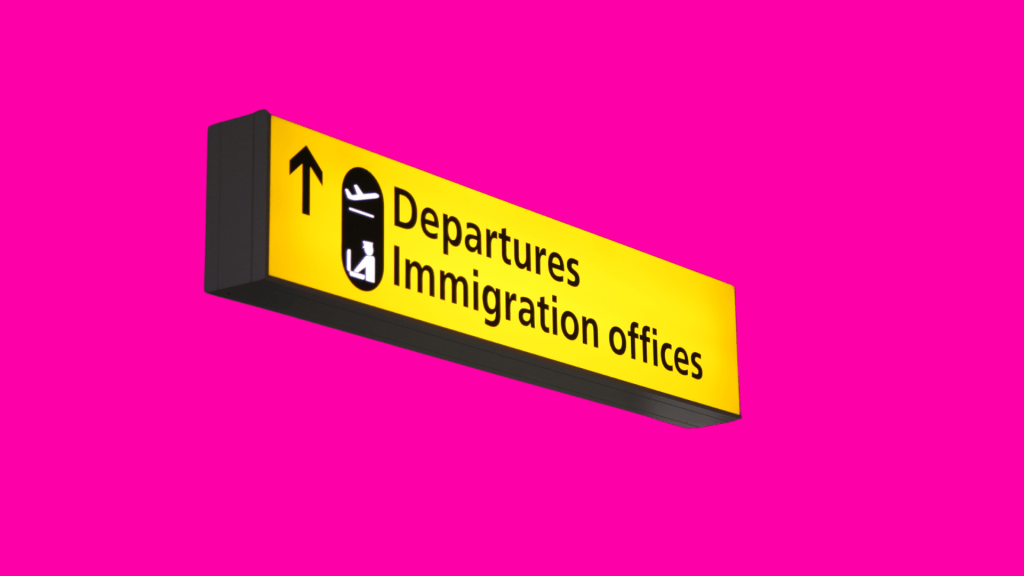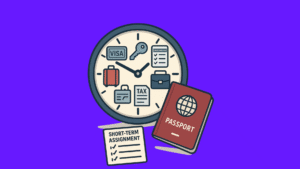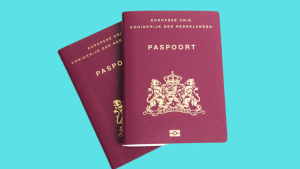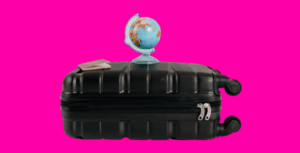Moving to a new country is an exciting adventure, filled with exploring new landmarks, embracing different cultures, and simply starting fresh. However, as thrilling as it is, the process can sometimes feel like trying to solve a complex puzzle, with a few missing pieces. A major part of moving to a new country is the immigration paperwork, applications and requirements, which can certainly make your head spin. Are you planning to move to the Netherlands? You’ll need to tackle work visas, residence permits, and brace yourself for a mountain of forms- who knew paperwork could multiply so quickly!
Without expert help, even a tiny mistake can throw a wrench in your plans, causing delays or even denials. That’s why having a simple, clear roadmap is key to keeping things on track- saving you from pulling your hair out! At Jimble, we make the relocation process to the Netherlands simple and hassle-free. We make sure everything is in order, on time and all requirements are met. While we make sure your move is seamless, you can plan all your adventures, and focus on the fun part.
Common Types of Visas and Residence Permits in the Netherlands
The Netherlands offers a variety of visa options, depending on the purpose and duration of your stay. Whether you’re a skilled worker, an entrepreneur, or joining a family member, understanding the different visa types is crucial to ensure your application goes smoothly. Here’s a breakdown of common reasons for relocation and the corresponding visa options:
1. Work Visas for Highly Skilled Migrants
Are you a skilled migrant with a job offer in the Netherlands? The Highly Skilled Migrant Visa is one of the most sought-after work permits. Companies in the Netherlands actively recruit international talent, especially in sectors like tech, engineering, and healthcare. To qualify for this visa, your Dutch employer must be a recognized sponsor by the IND (Immigration and Naturalisation Service), and you must meet the salary thresholds set by the Dutch government. When applying for a job, it is important to communicate with your employer, and before applying check the Public Register Recognised Sponsors to check if the company is on the list.
Tip: The Public Register Recognised Sponsors is updated once a month. Keep checking it to see whether a company has been added, to open up your job pool search.
2. Orientation Year Visa for Graduates and Trainees
Have you recently graduated from a university in the Netherlands or another country? If you’re looking to gain experience in the Dutch job market, the Orientation Year Visa (zoekjaar) allows recent graduates to stay in the Netherlands for up to one year to search for employment or internships. It’s a great opportunity to explore the Dutch work culture while expanding your professional network. Checking the requirements to see whether this applies to your specific situation is essential, as it allows people who have not studied in the Netherlands on the basis of the ranking of your university to explore the Dutch work culture and gain essential experience.
3. Residence Permit for Family and Partner
If your partner or family lives in the Netherlands, you may be eligible for a Family or Partner visa. This visa allows spouses, partners, children, or dependent family members to join their loved ones who already have legal residence in the Netherlands. The process involves proving the legitimacy of the relationship and meeting income requirements. There are other requirements that need to be fulfilled when applying for this visa.
4. Start-up or Business Visa
For those looking to start or expand a business in the Netherlands, the Entrepreneur Visa or the Startup Visa might be suitable options. You also have the option for a residence permit as a self-employed person. In both Startup Visa or residence for self-employment you must prove that your work is of essential interest to the Dutch economy. However, The Netherlands has treaties with several countries that make it easier for entrepreneurs to invest or start businesses. Additionally, programs like the Dutch-American Friendship Treaty (DAFT) offer special provisions for U.S. citizens wishing to do business in the Netherlands.
5. EU Blue Card
The EU Blue Card is a work and residence permit designed for highly skilled migrants from non-EU countries. One key difference between the EU Blue Card and the Highly Skilled Migrant Visa is that after holding the Blue Card for 18 months, the cardholder can apply to work in other EU countries that participate in the Blue Card scheme. The EU Blue Card remains valid for the duration of the employment contract, provided that the salary and skill requirements are met. It’s important to note that the salary threshold for the EU Blue Card is typically higher than that of the Highly Skilled Migrant Visa and exceeds the average salary in the host country. This makes it a more selective option for highly skilled workers looking to work across the EU.
6. Verification against EU Law
If you are coming to the Netherlands to live with a European Union Citizen as a non-European or EEA citizen. You can apply for verification against EU Law. The first assessment of the IND determines whether you come under EU law as it provides free movement of persons within the EU. Family members of a Dutch citizen can only apply if the Dutch citizen has used the right to free movements of persons. It is essential to prove certain requirements such as relationships, or prove dependency on the Union citizen such as financial, or health. Verification against EU law does not require family members to undergo civil integration exams. Moreover, with this residence permit, you are allowed to freely enter the labor market without requiring a work permit.
Essential Documents Required for Immigration to the Netherlands
No matter which visa or residence permit you are applying for, gathering the correct documentation is a key step in the process. Missing or incorrect documents can cause delays or rejections, so it’s important to be thorough. First, it is important to see whether you require an MVV, which is used to enter the country until you can get your residence permit. This depends on the passport you have. Below are some essential documents you will likely need, depending on your visa type:
1. Copy of Employee Passport
- The passport must be valid for the duration of your stay and for at least three months beyond your planned departure date. This will be used as a part of the application, to ensure identification requirements are met.
2. Employment Contract or Job Offer Letter
- If applying for a Highly Skilled Migrant Visa, you’ll need an official job offer or contract from a recognized Dutch employer. It must outline the employee’s role, salary, and conditions of employment. The contract must prove that the job aligns with Dutch labor standards, so it is eligible for the highly skilled migrant visa.
3. Proof of Financial Means
- Companies are required to provide economic stability to show they can meet salary commitments and cover any additional relocation expenses.
4. Sponsorship Agreement
- The company must be recognized as a sponsor by the Dutch Immigration and Naturalisation Service (IND) if they require you to apply on your behalf (for a work visa), This involves signing an agreement committing to the obligations of sponsorship.
5. Compliance Documents
- This can include all documents that may prove your company complies with Dutch labor laws and immigration regulations, including financial statements, and prior tax returns if necessary.
6. Proof of Qualifications or Degrees
- If you are applying as a skilled migrant or for a EU Blue Card, you may need to provide certified copies of your degrees, diplomas, or other qualifications. You must also make sure your documents are translated in Dutch, English, French, German or Spanish.
7. Criminal Record Check and Appendix Antecedents Certificate
- Depending on your visa type, some applicants may be required to provide a recent criminal record check from their home country. For foreign nationals, a declaration must be made, to provide information regarding criminal history.
8. Visa Application Form
- A fully completed visa application form specific to the type of visa you’re applying for is required, along with any relevant fees. This is often done by the employer on behalf of the employee and is required for a Highly Skilled Migrant Visa and EU Blue Card.
9. Proof of Dutch Address (for Residence Permits)
- In some cases, employers may need to show that suitable housing arrangements are made for the employee. This is particularly true for those who are relocating from abroad. Moreover, it is also needed for the employee to register at their local municipality (Gemeente).
10. Company Registration
- This is a document showing that the company is registered with the Chamber of Commerce (KvK). This is to show that the company is operating legally in the Netherlands.
Immigration services after settling in the Netherlands
Once established in the Netherlands, immigration services extend beyond just getting in the country. Many expats seek to change or extend their residence permits, especially after their initial permits expire.
1. Permanent Residence After Five Years
After living in the Netherlands for five consecutive years, you may be eligible to apply for permanent residency. This status gives you more flexibility and security in the country, allowing you to stay without needing to renew your permit every few years. You must meet certain conditions, such as sufficient income and integration requirements, including passing a civic integration exam.
2. Switching Employers
If you’re already working in the Netherlands but want to change employers, you may need to update your work permit. The Highly Skilled Migrant Visa allows for flexibility, but your new employer must also be a recognized sponsor. Failing to update your immigration status when changing jobs could lead to legal complications.
Common Immigration Mistakes to Avoid
Navigating the Dutch immigration system can be tricky, and even small errors can result in delays or rejection. Here are some common mistakes to avoid:
- Submitting incomplete or incorrect documentation
- Missing deadlines for renewals or updates
- Misunderstanding eligibility criteria for specific visas
- Failing to keep your residency or work permit in good standing
Why Expert Support is Essential for Your Immigration Journey
The Netherlands is known for its bureaucracy, and navigating the various steps in the immigration process can be challenging without professional help. Expert immigration services provide a clear roadmap, saving you time, stress, and the risk of making costly mistakes. At Jimble DSP, we offer tailored support for all types of visa applications, including skilled migrants, family reunification, business expansion, and more.
Benefits of Using Professional Immigration Services:
- Personalized guidance based on your specific situation and providing services with a personal touch
- Streamlined application process with fewer chances of error
- Expert advice on legal requirements, visa renewals, and permanent residency applications.
- Ongoing support even after you’ve moved to the Netherlands.
Conclusion
Whether you’re a skilled worker, graduate, entrepreneur, or family member relocating to the Netherlands, understanding the immigration process is key to a successful move. We understand the complexities of the process, and how stressful it can be. With our professional guidance, you can focus on starting your new life in the Netherlands while we handle the complexities of immigration for you. Ensuring a hassle-free moving experience.
Here at Jimble Destination Service Provider, we provide support at every step of your relocation journey. Are you relocating to the Netherlands from the US for work? Contact us to talk to one of our specialists, to find out how we can help you have the best relocation experience.











